Resources
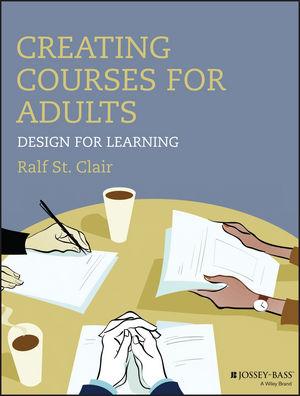
Click Here for Book Review Abstract: Become an effective adult educator by approaching teaching systematically As the author describes at the beginning of Creating Courses for Adults, "The big idea of this book is that education for adults has to be designed." Whether in basic skills training, English language classes, professional development workshops, personal interest courses, or formal degree programs, good teaching tends to conceal all the planning and decisions which had to be made in order to present participants with a seamless and coherent process for learning. The author posits that nobody is a completely intuitive teacher and that everybody has to make a series of choices as they put courses together. The decisions they make are important and far-reaching, and deserve to be considered carefully. Starting with the three core factors which must be taken into account when creating courses, Creating Courses for Adults walks readers through a manageable process for addressing the key decisions which must be made in order to design effective learning. - Instructor factors are what the teacher brings to the teaching and learning process, such as experience and preferences. - Learner factors are the influences that students bring with them, including their past experiences and expectations for the class. - Context factors include the educational setting, whether in-person or online, as well as the subject matter. Readers of Creating Courses for Adults will learn a systematic approach to lesson and course design based on research into the ways adults learn and the best ways to reach them, along with pointers and tips for teaching adults in any setting. (From the Publisher)
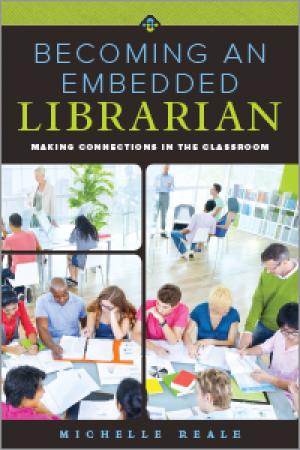
Click Here for Book Review Abstract: Embedded librarianship is “not one size fits all,” yet many books on the subject treat it in a cold, objective manner that doesn’t adequately communicate how becoming an embedded librarian actually works in the real world. Here, Reale shares her own university classroom experiences to offer a step-by-step primer for those contemplating the practice. Demystifying what can sometimes feel intimidating to academic librarians, this down to earth resource - defines what embedded librarianship is, and isn’t; - explains why being in the classroom is so important, and how it creates communities of learning; - hows how to clarify the role of the librarian in a classroom by being a “facilitator of process”; - offers strategies for relationship building, setting goals, and honing a teaching style; and - discusses embedded librarianship and branding. Readers will feel confident applying the lessons learned from Reale’s first-hand account to their own experiences both in and out of the classroom. (From the Publisher)
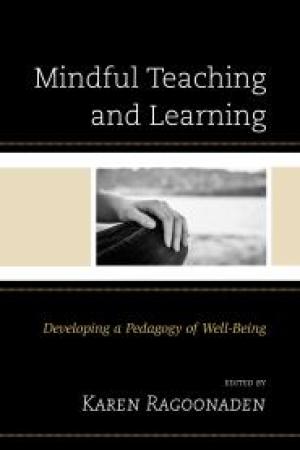
Click Here for Book Review Abstract: Mindful Teaching and Learning: Developing a Pedagogy of Well-Being features a community of scholar-practitioners from across disciplines, methodologies, and ideological perspectives exploring and examining contexts that support mindful teaching, mindful learning, and a pedagogy of well-being. Collectively, these chapters document and analyze the opportunities and challenges within pedagogical sites and discuss how the disposition of mindfulness can be nurtured and sustained in educational practice and praxis. Bolstered by the positive evidence-based standards emanating from clinical settings, mindfulness based training has spread into a variety of other fields like psychology, healthcare, and more recently, education. Within pedagogical environments, an emergent secular conception of mindfulness, under the auspices of educational psychologists like Langer (1987; 1997), Goleman, (2008), Lantieri (2008), Roeser, Skinner, Beers, and Jennings, (2012), and Schonert-Reichl and Lawlor (2010), is making headway. Consequently, Mindfulness Training (MT) resources have been applied to educational contexts in order to maximize the academic, emotional, physical, and psychological benefits provided by this mind-body approach to well-being. Acknowledging the increasing evidence base for the efficacy of mindfulness interventions as well as the elevated stress levels reported by many educators and their students, this book discusses how mindful practices, praxis, and research can inform and support pedagogy, curriculum, and leadership initiatives in higher education in the twenty-first century. Alongside the multitude of recent studies in the area of Mindfulness, contributors discuss their own experiences using Self-study, Contemplative pedagogy, Living Educational Theory, and Curriculum Inquiry. The content of this book examines ways in which to develop habits of mind and courses of action, as well as a curriculum of study that can support educators as they cultivate competencies for thriving and coping with the modern demands of being a teacher. (From the Publisher)
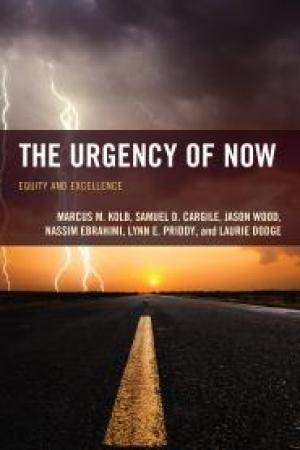
Click Here for Book Review Abstract: With the student body evolving quickly, and the looming challenge of the “completion agenda,” community colleges are facing circumstances like never before in serving all students and propelling them to fulfilling their education aspirations. The Urgency of Now suggests a way forward, with students and their learning at the center of what community colleges, and all of higher education, must do to generate graduates in possession of high quality degrees and credentials. Through considering comprehensive assessment, new roles for accreditation, faculty engagement strategies, and competency-based education, The Urgency of Now describes our current challenges and the ways we might meet those challenges for the 21st century institution. (From the Publisher)

Click Here for Book Review Abstract: Higher educations professionals face a myriad of competing demands on their time. Many of these pressures exist apart from teaching and outside the classroom altogether. Career requirements can seem to be never ending, and if they are not carefully managed and balanced, they can overrun even the most committed scholar’s resolve. The latest book in Atwood’s 147 Tips series, 147 Practical Tips for Emerging Scholars presents readers with a much-needed guide to the varied ins and outs of a career in higher education. Advocating detailed planning and clear priorities, the authors have crafted a thorough and accessible book to simplify and de-stress the navigation of a scholar’s world. Their pragmatic and detailed tips offer advice on crucial topics including: - Writing grants - Research - Working with technology - Collaboration - Mentoring The authors write: 147 Practical Tips for Emerging Scholars assists you in developing your successful professional journey as a scholar by delivering proven and succinct guidance.... You can use this book as a ready reference that you can turn to again and again for solid direction, clarity, and encouragement. This essential volume offers fresh and enriching insights, and will prove an indispensable tool for higher education professionals - new and veteran alike. (From the Publisher)
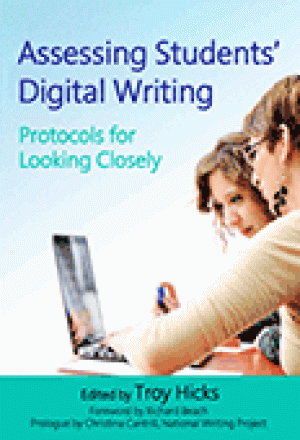
Click Here for Book Review Abstract: In this book, Troy Hicks - a leader in the teaching of digital writing - collaborates with seven National Writing Project teacher consultants to provide a protocol for assessing students’ digital writing. This collection highlights six case studies centered on evidence the authors have uncovered through teacher inquiry and structured conversations about students’ digital writing. Beginning with a digital writing sample, each teacher offers an analysis of a student’s work and a reflection on how collaborative assessment affected his or her teaching. Because the authors include teachers from kindergarten to college, this book provides opportunities for vertical discussions of digital writing development, as well as grade-level conversations about high-quality digital writing. The collection also includes an introduction and conclusion, written by Hicks, that provides context for the inquiry group’s work and recommendations for assessment of digital writing. Book Features: An adaptation of the Collaborative Assessment Conference protocol to help professional learning communities examine students’ digital work. Detailed descriptions of students’ digital writing, including the assessment process and implications for instruction. Links to the samples of student digital writing available online for further review and to be used as digital mentor texts. (From the Publisher)
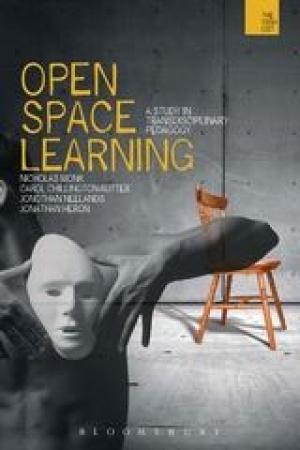
Click Here for Book Review> Abstract: Open-space Learning offers a unique resource to educators wishing to develop a workshop model of teaching and learning. The authors propose an embodied, performative mode of learning that challenges the primacy of the lecture and seminar model in higher education. Drawing on the expertise of the CAPITAL Centre (Creativity and Performance in Teaching and Learning) at the University of Warwick, they show how pedagogic techniques developed from the theatrical rehearsal room may be applied effectively across a wide range of disciplines. The book offers rich case-study materials, supplemented by video and documentary resources, available to readers electronically. These practical elements are supplemented by a discursive strand, which draws on the methods of thinkers such as Freire, Vygotsky and Kolb, to develop a formal theory around the notion of Open-space Learning. (From the Publisher)
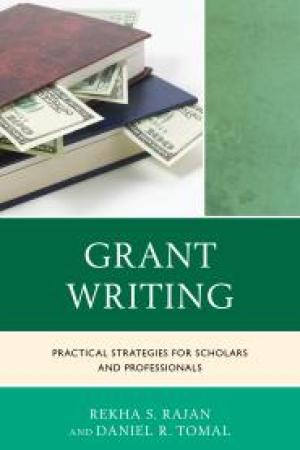
A first of its kind, this book provides you everything you need to know about successfully navigating the grant writing process including understanding the language of grant writing, finding grants, preparing the proposal, completing the application, preparing budgets, organizing information and timelines, revising and editing the proposal, including the assessment and evaluation, and building meaningful relationships with program officers and colleagues. (From the Publisher)
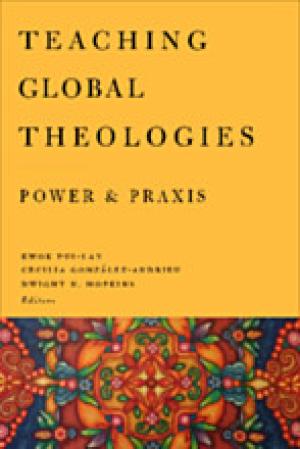
Click Here for Book Review Abstract: Theological education, like theology itself, is becoming a truly a global enterprise. As such, theological education has to form, teach, and train leaders of faith communities prepared to lead in a transnational world. The teaching of theology with a global awareness has to wrestle with the nature and scope of the theological curriculum, teaching methods, and the context of learning. Teaching Global Theologies directly addresses both method and content by identifying local resources, successful pedagogies of inclusion, and best practices for teaching theology in a global context. The contributors to Teaching Global Theologies are Catholic, mainline Protestant, and evangelical scholars from different racial and ethnic backgrounds, each with sustained connections with other parts of the world. Teaching Global Theologies capitalizes on this diversity to uncover neglected sources for a global theology even as it does so in constructive conversation with the long tradition of Christian thought. Bringing missing voices and neglected theological sources into conversation with the historical tradition enriches that tradition even as it uncovers questions of power, race, ethnicity, class, gender, and sexuality. Teachers are offered successful pedagogies for bringing these questions into the classroom and best practices to promote students’ global consciousness, shape them as ecclesial leaders, and form them as global citizens. (From the Publisher)
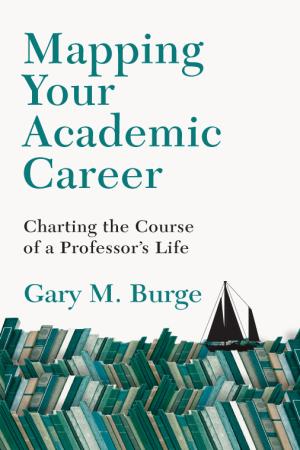
Click Here for Book Review Abstract: You're finishing your first year of teaching. It's been exciting and gratifying, but there've been some wobbly episodes too. How will you carve out a space to flourish? You're feeling secure in mid-career, with some accomplishments to be proud of. But what should success really look like? You're nearing the end of your career, and sometimes apprehensive about the blank slate of retirement. What might it look like to finish well? In Mapping Your Academic Career Gary Burge speaks from decades of teaching, writing and mentoring. Along the way he has experienced and observed the challenges and tensions, the successes and failures of the academic pilgrimage. Now, with discerning wisdom and apt examples, he hosts the conversation he wishes he'd had when he started out as a college professor, identifying three cohorts or stages in the academic career and exploring the challenges, pitfalls and triumphs of each. Wherever you are in your teaching life, this is a book that will reward reading, reflection and discussion. (From the Publisher)